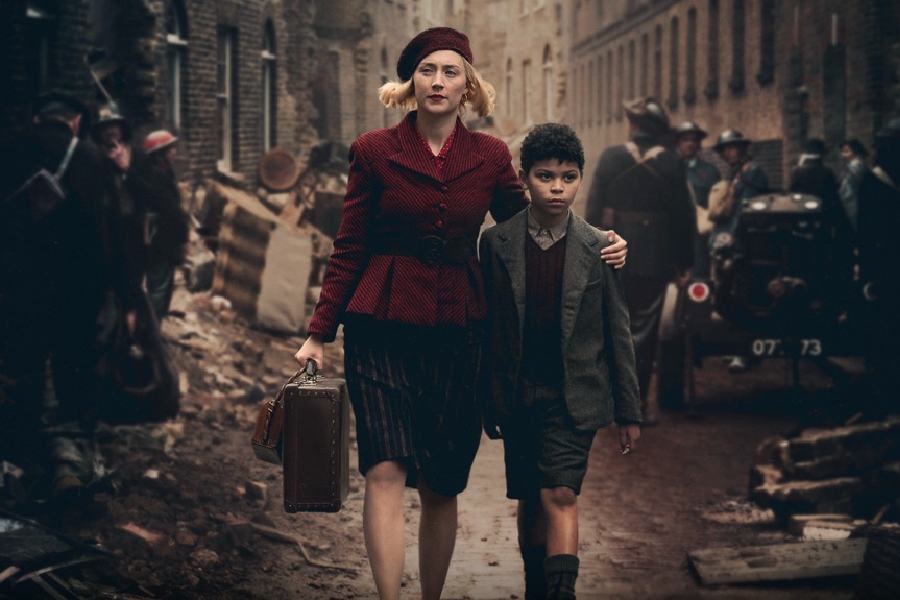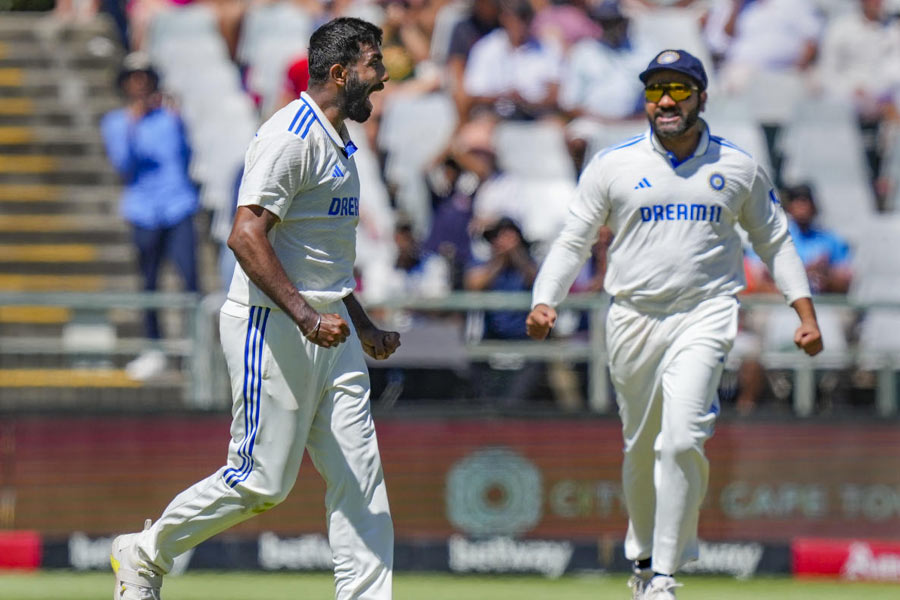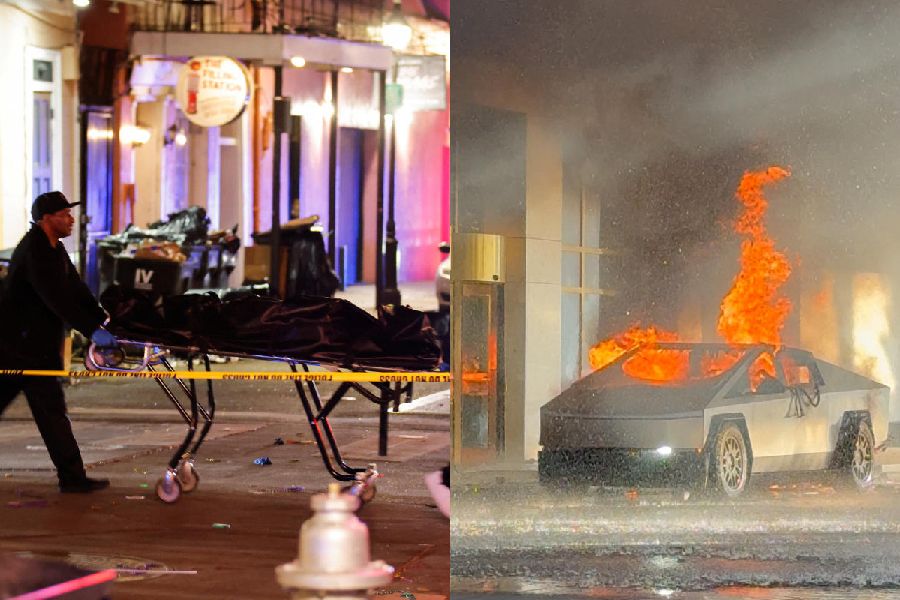Steve McQueen’s Blitz, streaming on Apple TV+, reaffirms his ability to weave poignant narratives from historical backdrops. McQueen, who delivered the Oscar-winning 12 Years a Slave over a decade ago, offers a World War II drama in Blitz, which is part historical epic, part fable.
The story follows George, a biracial nine-year-old portrayed by newcomer Elliott Heffernan, and his mother Rita (Saoirse Ronan). Relentless bombings have turned life into a surreal nightmare in London and Rita must make a devastating choice: send her son to the countryside for safety or keep him close in London’s precarious embrace. Following the government’s evacuation mandate, George boards a train with thousands of other children, leaving behind a mother torn apart by her decision. Midway through his journey, George leaps out of the train after being bullied for being black, and decides to return to his mother in London.
What unfolds next is a visually rich, episodic journey through wartime Britain, where George encounters a cast of vividly drawn characters who embody the fractured state of the nation. McQueen uses George’s travels as a lens to explore themes of race, class, and survival. The standout among these characters is Ife (Benjamin Clémentine), a Nigerian-born soldier who shelters George and challenges his internalised prejudice.
Through Ife’s quiet compassion, McQueen underscores the film’s message: the need for solidarity and understanding in a divided world. The bond between George and Ife is tender and transformative, offering George a glimpse of a different kind of strength — one rooted not in stoicism, but in self-acceptance and kindness. Their scenes together are some of the most affecting in the film, marked by a sense of humanity that transcends the grimness of their surroundings.
However, McQueen’s commitment to a heightened, almost allegorical tone sometimes undercuts the immediacy of the story. While the episodic structure allows for moments of brilliance — such as Stephen Graham’s chilling turn as a manipulative thief who lures George into his criminal fold — it also leads to a narrative sprawl. This rambling quality makes George’s journey feel unmoored at times, more a collection of thematic vignettes than a cohesive narrative arc.
While Rita’s story in London serves as a counterpoint to George’s adventures, it is less compelling. Ronan delivers a typically strong performance, but her storyline is confined to familiar beats of maternal guilt and resilience. A musical sequence in which Rita performs an inspirational song for wartime radio feels oddly misplaced, disrupting the film’s otherwise sombre tone.
Visually, Blitz is stunning, with McQueen and cinematographer Shabier Kirchner capturing the grim beauty of wartime Britain in striking detail. In a harrowing opening scene, McQueen captures the sheer pandemonium of the Blitz: flames engulf homes, horses panic, and firefighters wrestle with an out-of-control hosepipe in a desperate battle against the inferno. This scene sets the tone for a film that is as much about the visceral horrors of war as it is about the quieter struggles of identity, family, and survival.
But for all its ambition and artistry, Blitz lacks the cohesive emotional punch needed to elevate it to greatness. Its Dickensian aspirations are admirable, but they also make the film feel oddly detached at times, as if McQueen is holding the audience at arm’s length. Like the city it portrays, Blitz is a patchwork—messy, fractured, and imperfect, yet undeniably compelling.











